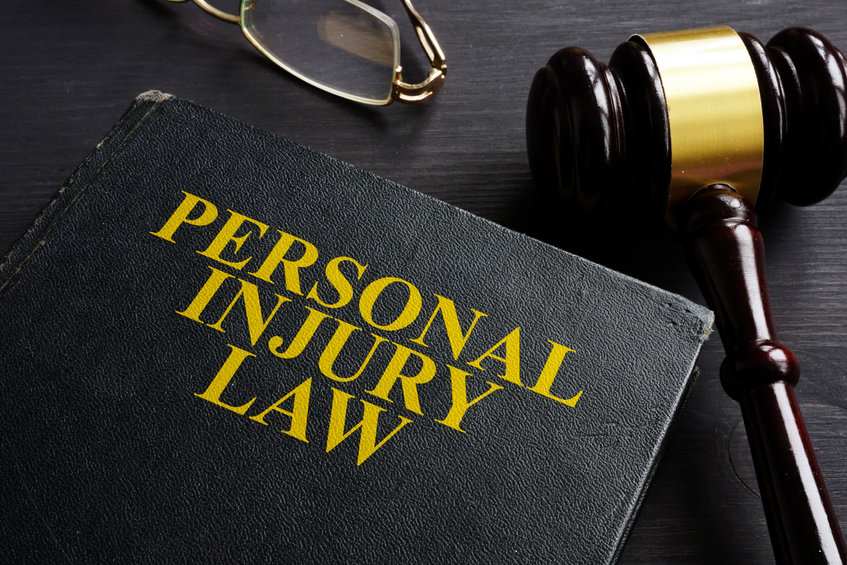What Common Legal Terms Should Florida Accident Victims Know?
Share August 11, 2021 | Category: Blog "Accident victims are often overwhelmed after an accident. Their many worries include not only recovering medically and financially but how they are going to move forward with their lives. We at Spivey Law Firm, Personal Injury Attorneys, P.A. want to alleviate our clients’ financial stress so they can focus on the recovery process. We have extensive experience in handling personal injury and wrongful death claims. To make it easier for our clients to communicate, we are sharing an American Bar Association (ABA) list of some of the common legal terms Florida accidents victims may want to know,” said Fort Myers Accident Attorney Randall Spivey.
"Accident victims are often overwhelmed after an accident. Their many worries include not only recovering medically and financially but how they are going to move forward with their lives. We at Spivey Law Firm, Personal Injury Attorneys, P.A. want to alleviate our clients’ financial stress so they can focus on the recovery process. We have extensive experience in handling personal injury and wrongful death claims. To make it easier for our clients to communicate, we are sharing an American Bar Association (ABA) list of some of the common legal terms Florida accidents victims may want to know,” said Fort Myers Accident Attorney Randall Spivey.
Important ABA Legal Terms:
Acquittal - A release, absolution, or discharge of an obligation or liability. In criminal law, the finding of not guilty.
Adjudication - Giving or pronouncing a judgment or decree. Also, the judgment given.
Affidavit - A voluntary, written, or printed declaration of facts, confirmed by oath by the party making it before a person with authority to administer the oath.
Answer - In a civil case, the defendant's written response to the plaintiff's complaint. It must be filed within a specified period of time, and it either admits to or (more typically) denies the factual or legal basis for liability.
Compensatory damages - Money awarded to reimburse actual costs, such as medical bills and lost wages. Also awarded for things that are harder to measure, such as pain and suffering.
Contingency fee - In a contingency fee arrangement, the client pays no attorney’s fees or costs unless the firm obtains a monetary recovery for him or her.
Damages - Money awarded by a court to a person injured by another person.
Deposition - Testimony of a witness or a party taken under oath outside the courtroom, the transcript of which becomes a part of the court's file.
Discovery - A process prior to a trial in which each side obtains facts and information about the case from the other side and from other sources.
Interrogatories - A set or series of written questions sent to a party, witness, or other person having information or interest in a case; used in the discovery phase of a case.
Mediation - A private, informal way to resolve a dispute. A mediator is a neutral third person who tries to aid disputing parties in reaching a mutually agreeable solution to their differences. Bar-sponsored client-lawyer mediation programs can be a good first step if efforts to work the problem out with the lawyer have not succeeded.
Motion - A request made to a court or judge which seeks a ruling or order in favor of the applicant.
Paralegal - A person, usually with special training but who has not earned a law degree, who works under the supervision of a lawyer. Also called a legal assistant.
Plaintiff - A person who brings a lawsuit or action; the party who complains or sues in a civil action.
Pleadings - The written statements of fact and law filed by the parties to a lawsuit.
Standard of proof - In a court case, indicates the degree to which the point must be proven. In a civil case, the plaintiff must usually establish his or her case by a "preponderance of evidence" or "clear and convincing evidence."
Statute of limitations - A statute that limits the right of a plaintiff to file an action unless it is done within a specified time period after the occurrence which gives rise to the right to sue.
Stipulation - An agreement between the parties involved in a suit, agreeing that a certain fact or law will be assumed to be true or relevant.
Subpoena - An order compelling a person to appear to testify or produce documents.
Summary judgment - When a court gives its judgment that there is no dispute as to the facts of the case and one party is entitled to a judgment as a matter of law.
“If you or a loved one is injured because of the negligence of another, please contact Spivey Law Firm, Personal Injury Attorneys, P.A. after seeking medical attention. We represent people involved in numerous types of personal injury and wrongful death accidents throughout the state of Florida. All of our clients have unique personal injury cases. Our firm provides personal contact and communication along with aggressive representation. There are no costs or attorney fees until we receive monetary recovery for you, and we are available 24/7,” said Fort Myers Accident Attorney Randall Spivey.
Fort Myers Accident Lawyer Randall L. Spivey is a Board Certified Trial Attorney – the highest recognition for competence bestowed by the Florida Bar and a distinction earned by just one percent (1%) of Florida attorneys. He has handled over 2,000 personal injury and wrongful death cases throughout Florida. For a free and confidential consultation to discuss your legal rights, contact Spivey Law Firm, Personal Injury Attorneys, P.A., in Lee County at 239.337.7483 or toll-free at 1.888.477.4839, or by email to Randall@SpiveyLaw.com. Visit SpiveyLaw.com for more information. You can contact Spivey Law Firm, Personal Injury Attorneys, P.A. in Charlotte County at 941.764.7748 and in Collier County at 239.793.7748.


